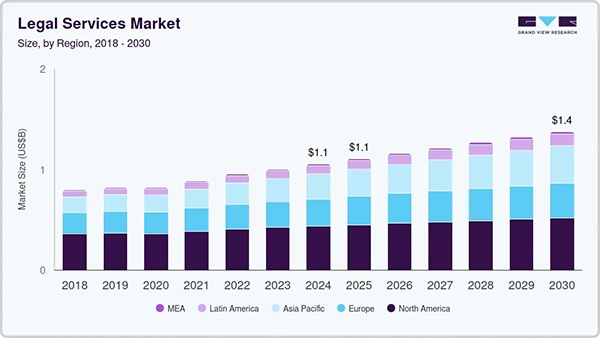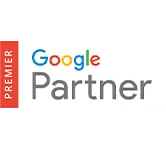As far as I have observed, law firms nowadays prioritize throwing ridiculous amounts of money into marketing their firm rather than improving their service quality. In fact, there are thousands of overpriced SEO services running on unrealistic promises, on their vague ad campaigns to target everyone.
What’s more frustrating is that these firms claim that marketing is of no use for lawyers, but the real problem is in their wrong approach and techniques. They need to know that smart marketing requires more strategic and focused methods to connect with clients.
So, are you thinking about marketing for law firms and hoping for an actual return on investment without burning through cash? Surely, these practical tips will help you get there. Just understand what works, what doesn’t, and how to avoid the expensive mistakes that drain budgets without producing cases.
Scroll up and read this guide; I have explained everything here!
KEY TAKEAWAYS
- Always commence with a clear view of what you want: more clients, higher-value cases, or something else.
- Add the most impacting call-to-action on every page of the website, put testimonials or awards, along with a clear display of services offered.
- Use local SEO and directories to reach out to nearby clients, as most people prefer a local lawyer.
- Think strategically: use long-tail keywords to specify the services and get a low-cost advertisement done.
Start With a Clear Marketing Goal
Here’s where most law firms get stuck right from the beginning: they jump into marketing strategies without having a set goal of what they’re trying to accomplish. One can’t succeed without knowing what success looks like for your specific practice.
See what you are looking for:
- Do you want more phone calls from potential clients?
- Are you trying to gain bigger, higher-value cases?
- Maybe you want more local awareness because you just opened a new practice area?
Each of these desired outcomes requires an entirely different move, and trying to do everything at once often means you do nothing particularly well.
Think carefully about the kind of work you want more of and who your ideal client would be. For example, a personal injury lawyer will be looking for car accident cases, slip and falls, or medical malpractice. In another case, a family lawyer would want more divorces, custody cases, or adoption work?
Essential questions to answer before spending a dime:
- What type of casework do you want more of?
- What’s the generic value of those cases to your firm?
- How many new consultations do you call for each month to hit your goals?
- What’s your approximate monthly marketing budget?
Set actionable goals like “10 new personal injury consultations per month” or “5 high-net-worth divorce cases per quarter.” This helps you stay on track and avoid squandering money on pointless metrics that don’t advance your practice.
Maximize Your Website Before Paying for Traffic
This might be the biggest money-wasting mistake I encountered: firms spending thousands on Google Ads or SEO to drive traffic to websites that don’t convert visitors into clients. It looks like pouring water into a bucket that has holes in the bottom.
Before you spend a single dollar on advertising, ensure your website functions properly. Is it quick? Does it appear professional on mobile devices? Can someone figure out where you practice, what you do, and why they should choose you within about 10 seconds of landing on your homepage?
Your website is supposed to answer the three questions every potential client has:
- What do you do?
- Where do you do it?
- Why should I trust you rather than the lawyer down the street?
If the website visitors can’t find these answers on the spot, they’ll just hit the back button and call your competitor.
Incorporate effective calls to action on every page — don’t make people hunt for your contact number or application form. Include client trust signals like testimonials, professional awards, case results (following ethical guidelines), and bar certifications. These details build confidence and convince people to pick up the phone.
Use Local SEO and Directories Strategically
A lot of people who look for legal help want a local lawyer, which is great news, seeing that local SEO is often easier and cost-effective than trying to compete nationally. Commence setting up and optimizing your Google Business Profile — this is absolutely free and crucial for ranking up in local search results.
Place your company on reliable legal directories such as Justia, Avvo, and FindLaw; however, unless you can clearly track return on investment, do not invest in the pricey premium plans. The basic listings are typically just as effective and cost a fraction of the premium choices.
Ensure that your name, phone number, and address are exactly the same across all directories and your website. Inconsistent details may confuse Google and hurt your local rankings. Ethically encourage satisfied clients to leave Google reviews— a simple follow-up email after case resolution, asking if they’d share their experience is usually enough.
These local SEO techniques help you appear for free when potential clients search for lawyers in your locality, which is often the highest-converting traffic you can get.
INTERESTING FACT
The global legal services market size (including a law firm) is expected to be worth more than 1.37 trillion USD by 2030, with a CAGR of 4.5%.

Achieve Results Through Targeted, Low-Cost Advertisement
In short, Google Ads can (and do) be effective for law firms, but only if you are completely focused on attracting high-intent searches from people who are prepared to hire an attorney. Road keywords such as “lawyer” or even “divorce lawyer” may cost you more money due to the clicks that do not make it to serious prospects.
So, instead of targeting broad keywords (as a lawyer, the keyword probably doesn’t really matter anyway), you are better off using long tail keywords that hint at a strong and specific intent. For example, “divorce lawyer with free consultation Chicago” or “DUI attorney weekend hours Denver.”
Comparatively, long-tail keywords cost less per click than broad keywords, and they have better conversion rates as the potential clients are further into the decision process.
You could also consider Facebook or Instagram ads that are geo-fenced to users within your specific geography for specific services or events. Geo-fenced ads are way cheaper for raising local awareness (particularly for more individualized forms of law, where the consumer might not even be aware that they require legal representation until they come across the promotional materials).
Furthermore, you’re required to set up daily spending limits on your online advertisement and track your return on investment. Pause the old ad and try something else instead of hoping the ad will magically change performance and convert if you are launching online campaign components and your new ads are not producing consultations fairly quickly.
Conclusion
Marketing that works does not have to empty your firm’s bank account — it just needs to be carefully planned and focused on what generates real clients through your door.
The most thriving law firms I work with are committed to the basics: converting a website, having clear goals, and getting visibility in all the places ideal clients are looking for legal help.
Don’t pay attention to the marketing tools that are exciting and ‘look’ cool, and expensive promises and deals that seem too good to be true. Just learn the fundamentals that work instead of getting caught up in the shiny object syndrome of following every new marketing fad.
With the right attitudes and expectations, one can get amazing results in terms of strong and consistent returns (even with a small marketing budget).
FAQs
Q. What is the biggest mistake that occurs during marketing?
Ans: Not specifying a clear set of goals is the biggest mistake to make before marketing.
Q. Why does local SEO work better than international SEO?
Ans: Most people prefer lawyers who are easy to reach and know the relevant state laws, which is why local SEO works more effectively.
Q. What is the cost of running ad campaigns with Google Ads?
Ans: It depends on the project, while the average charges can be between $1,000 and $10,000/month.
Q. How are long-tail keywords more effective and budget-friendly?
Ans: Long-tail keywords specify the specialized services, so clients don’t have to search further, and its pay-per-click turns out to be less as well.










